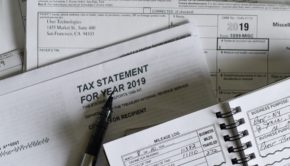Why Electronic Filing Is the Best?
Electronic filing is an IRS initiative that permits taxpayers to file their tax returns via the Internet. This new filing process has been offered as an alternative to mailing a paper tax return to the IRS. Illinois electronic filing is available for individual, business, and exempt organization tax returns.

Electronic filing has many advantages:
- Return information is more accurate because it’s entered directly into the computer and checked for accuracy by tax preparation software or the IRS e-file application. This means fewer math errors, less chance you’ll forget to include important information, and a greater likelihood that you’ll claim all of the credits and deductions you deserve.
- Faster refunds: When you e-file your tax return, the processing time is reduced significantly. The IRS acknowledges receiving your tax return within 48 hours after you electronically file your return. Some states acknowledge receipt of your e-filed state tax return in less than 24 hours after it is received. Most states send your refund check within 30 days of receiving your e-filed state return.
- You’ll have more time to file– E-file extends the due date for filing a federal income tax return through October 15th, without requesting an extension – just e-file before midnight on October 15th.
Fewer media coverage of paper cuts and other on-the-job injuries from employees handling paper returns.

A big cash infusion when the IRS sells its excess office buildings and parking lots.
No more need for taxpayer assistance centers, where taxpayers can get help filing their returns because all filers will already have filed electronically by phone or Internet before they arrive at these offices anyway (that is, assuming there are any taxpayer assistance centers left after next year’s round of budget cuts).
Offers a more satisfied public because it won’t have to deal with the Internal Revenue Service again
Enhance productivity – The bump in productivity comes from not having to hire seasonal workers during tax season or having to lay them off afterward (because the work will be an ongoing process).
Essentially, electronic filing makes it easy to locate a document in seconds, which means you can spend less time searching for files and information. Or think about it this way: if you could find every document in your file room in less than a minute, how much would that be worth to your organization?
- Increase security – Electronic filing systems not only protect your confidential information from theft, loss, or damage due to fire or flood but also limit who has access to it. With electronic filing, your data is encrypted, so you know no one can read it without the necessary security clearance.
- Improve collaboration – An electronic filing system makes it easy for you to share files with colleagues in other departments or offices. The system also tracks who has accessed which documents, enhancing accountability and improving workflow management.
Finally, the benefits of electronic filing are not hard to identify. It can save time, money, and space; increase access to public records, reduce errors, and make it easier to track down files and retrieve information.

















